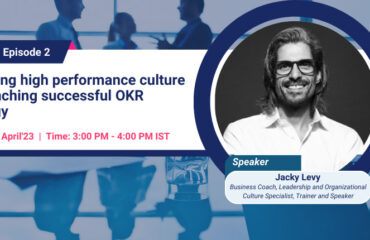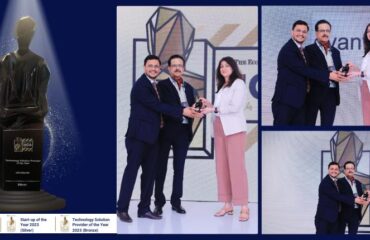The Speaker:
Dr. Shonna Waters
Technologist, Author, Coach and Psychologist
The Host:
Fatima Hussain – Lead Research Analyst, uExclerate
Table of Contents:
- Introduction to The Coaching Shift
- Key Trends in Coaching
- Impact of Coaching in the Workplace
- Real-world Applications of Coaching
- The Future of Coaching
- Conclusion and Key Takeaways
Overview:
In the recent webinar featuring Shonna Waters and her book “The Coaching Shift,” participants delved into the transformative power of coaching and the essential elements of cultivating a coaching mindset. Aspiring coaches and seasoned professionals alike gained invaluable insights into the nuanced dynamics of guiding individuals towards their goals and unlocking their full potential. Waters illuminated the multifaceted nature of coaching, emphasizing its role in fostering self-awareness, accountability, and continuous growth. The webinar provided a comprehensive overview of the principles and practices underpinning effective coaching methodologies, highlighting the significance of empathy, active listening, and strategic questioning in facilitating meaningful client progress. Participants emerged equipped with a deeper understanding of the profound impact a coaching mindset can have, both professionally and personally, in catalyzing positive change and fostering enduring success.
Context:
In today’s dynamic professional landscape, the coaching mindset has become essential for personal and professional growth. Rooted in empathy and continuous improvement, it empowers individuals to unlock their potential. By fostering open dialogue and offering feedback, coaches facilitate transformative journeys, enhancing performance and fostering trust within organizations. In essence, the coaching mindset catalyzes human potential and drives success in our interconnected world.
Webinar Summary:
About the book
The book by Shonna Waters and Brodie Gregory Riordan provides a comprehensive approach to coach training, offering insights into developing coaching skills applicable to individuals across various roles. Emphasizing the act of utilizing coaching skills, The book explores the importance of cultivating awareness and adopting a coaching mindset characterized by curiosity, openness, and non-judgment to enhance relationships. The book equips readers with practical skills to implement in their everyday interactions, fostering personal and professional growth through effective coaching techniques.
Cultivating the power of pausing
The “power of pausing” refers to the transformative potential of intentionally taking a moment of reflection or silence in decision-making and communication. According to her, biases, deeply ingrained in our biology and evolution, serve as heuristics that influence our thinking patterns. While biases cannot be entirely dismantled, awareness is pivotal.
Waters talks about tools like the ladder of inference, curiosity, and the power of pausing to navigate biases effectively.
Drawing from Nobel-winning psychologist Daniel Kahneman’s concept of ‘system one’ and ‘system two’ thinking, she emphasizes the role of pausing in promoting deliberate responses over reactive ones. Waters underscores the potency of pausing, curiosity, and non-judgmental attitudes in managing emotions and fostering effective communication and relationships.
She highlights the significance of intentionality, goal-setting, and progress monitoring in implementing these practices, particularly for leaders shaping organizational culture.
Through techniques like noticing, pausing, and renaming emotions, Waters demonstrates how the power of pausing can be leveraged through coaching methodologies to reduce stress and enhance overall performance.
How can we effectively persuade leaders to adopt coaching practices within their organizations?
Recognizing that people learn and model behavior based on their leaders, it’s crucial to understand that leaders serve as the linchpin in shaping organizational culture. Encouraging leaders to demonstrate intentionality in embracing new behaviors, despite the challenges of adaptation, is essential. Utilizing evidence-based research, emotional storytelling, and emphasizing the transformative impact of coaching can motivate leaders to embrace a coaching approach. Additionally, fostering curiosity and promoting a non-judgmental environment can further incentivize leaders to integrate coaching practices into their leadership style.
Coaching Mindset, Culture, and AI
Shonna emphasized the importance of a coaching mindset in managers and its wider application in achieving organizational goals. She argued that this approach involves understanding people’s unconscious goals and biases, and creating a safe environment for employees to explore their own solutions. She further discussed the benefits and challenges of creating a coaching culture, including the role of leaders in modeling this culture and the use of 360-degree feedback. The conversation also touched on the potential of AI in coaching, and the resources available through the International Coaching Federation.
Digital coaching platforms and AI’s role in developing coaching mindset
Digital coaching platforms and artificial intelligence (AI) play pivotal roles in fostering the development of a coaching mindset. These technologies offer various benefits, including administrative streamlining, analytical insights, and improved accessibility. Additionally, they provide valuable resources for building a coaching culture and offer potential benefits for individuals and organizations seeking to leverage digital platforms for coaching purposes.
Get your organization recognized as a leader in culture!
The Coaching Culture Circle Awards are back! The award celebrates Indian organizations for their outstanding dedication to fostering coaching cultures. Through careful research and consideration, we have curated five prestigious awards to honor the remarkable achievements of these organizations. Our esteemed jury meticulously evaluates each nominee, scrutinizing coaching practices, organizational impact, and employee development initiatives. These awards serve as a tribute to the transformative influence of coaching in driving success and fostering continuous learning within workplaces. Join us as we commend these organizations for their unwavering commitment to creating thriving work environments where employees can realize their full potential, thereby advancing the organizational vision.
Last year’s Coaching Culture Circle Awards were a resounding success, honoring organizations that have made remarkable strides in cultivating coaching cultures. While we regretted not having your participation last year, we eagerly anticipate your involvement in this year’s event. The Coaching Culture Circle Awards hold significant importance for several reasons:
- They recognize organizations that grasp the transformative potential of coaching, acknowledging its profound impact on employee development, performance, and overall organizational success.
- These awards spotlight the tangible benefits of coaching, showcasing how it drives innovation, fosters growth, and enhances collaboration within teams.
- By participating in these awards, organizations in Modern India reaffirm their commitment to building, sustaining, and accelerating coaching cultures within their respective teams, contributing to a more dynamic and resilient workplace culture.
Let’s take a glimpse at some of the past winners who have exemplified excellence in coaching practices:
- PwC – Recognized for Best Practices with Internal Coaches
- Verizon – Awarded for Best Coaching Culture
- Salesforce – Acknowledged for Best Coaching Culture
- S&P Global – Honored for Best Practices with Internal Coaches
- Virtusa – Celebrated for Innovative and Impactful Practices in Coaching
- Schindler – Commended for Emerging Coaching Culture Practices
These organizations serve as inspiring examples of how a commitment to coaching can drive tangible results and foster a culture of excellence. We eagerly anticipate seeing your organization among this esteemed list of winners this year.
You can read more about it here















